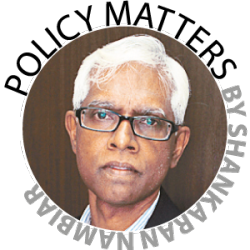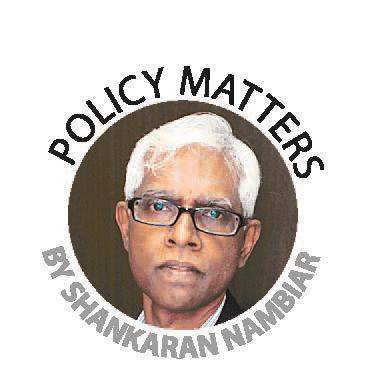RECENTLY, Dr Philippa Malmgren, author and president George Bush’s economic adviser, addressed a forum at Universiti Malaya on geopolitics in the context of the US-China trade war.
Malmgren gave an interesting presentation. I was intrigued by her view that the real race between the superpowers is a digital race. Not as in the past about nuclear superiority or a race to space.
This means that more than trade, the US and China are locked in a fight over data and all that it implies. Following the footprints, it becomes clear that the new geopolitical struggle is over advancements in artificial intelligence, big data, 5G and the associated technologies.
This brings quantum computing and algorithms right into the centre of the match.
Let us take a step back.
The new tech war is reminiscent of the 70s when the US wanted to get ahead or restrain the USSR from advancements in nuclear and space technologies.
This spells the return of a cold war, but with a new superpower. Given the dimensions of the conflict one can expect the tensions to be long drawn. They may manifest as a trade war; but there are other forms that they could take.
The next president of the US will have to handle the tech war. He may not be as flamboyant and erratic as President Donald Trump. He may have more finesse but he will have the task of ensuring the US’s technological superiority. By extension, he will have to restrain China.
The job will remain the same; the style with which it is executed will vary.
It is therefore extremely naïve to expect the trade war to end with the Trump administration, although it could manifest differently.
Let us take another step back.
What does this mean for Malaysia?
First, accept the fact that tensions between the US and China are not going to be resolved any time soon. There seems to be some denial on this point.
Second, play smart. By this I mean that Malaysia should avoid getting caught in any crossfire between the US and China. There should be a return to the principle of non-alignment. Malaysia should be “friends to all and an enemy to none”, a principle that should be reflected in carefully worded and factually correct statements which are not unnecessarily provocative.
Third, accept the reality of the situation. The US is the number one superpower and it might be in decline but superpowers do not necessarily concede power in an orderly or resigned manner. China, on the other hand, is a rising superpower which seeks to replace the US in the global arena. Its economic interest in the world – and Malaysia is no exception – may not be without interest in furthering its own ambitions.
This is not to say that Malaysia should avoid economic engagement with China. It would be ridiculous to make such a recommendation. Rather one should undertake due diligence, with our national interest in mind.
Decisions must be made subsequent to the standard cost benefit analysis. But one should consider broader factors such as national security, access to information, excessive dependence on one country over another and the like.
The Belt and Road Initiative, for instance, is not only about improving Malaysia’s infrastructure. It will, of course, do so; but it will also – among many other things – change the way we do business. For one, the BRI will introduce fintech in a deeper way. If one is to heed Malgrem’s cautionary note, the BRI will also make more data available to interested parties.
A critical point that must be borne in mind is that Malaysia should adopt a more strategic involvement in the new technologies and the race for data. We do not want to be unwitting pawns in the new tech war between the US and China.
If anything is being proposed it is only that we be hard-nosed about technology and its role in geopolitics because upcoming geopolitical tensions are going to be centred around data and the associated technology.
Dr Shankaran Nambiar is a senior research fellow at the Malaysian Institute of Economic Research. He is author of “Malaysia: An Economy at the edge of Transformation”. Comments: letters@thesundaily.com














